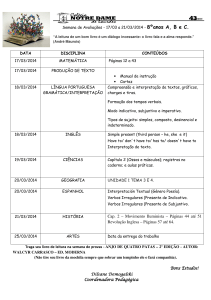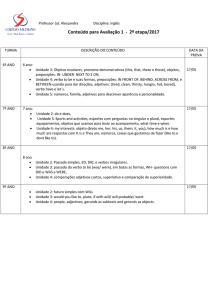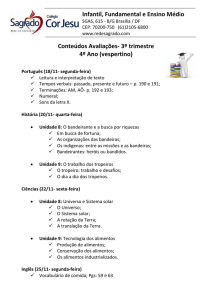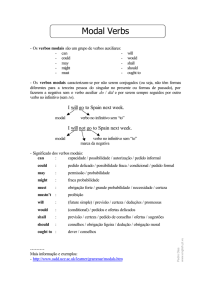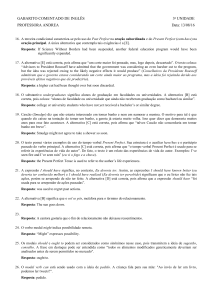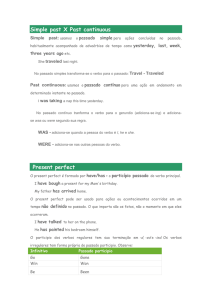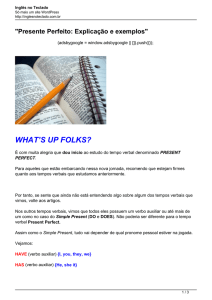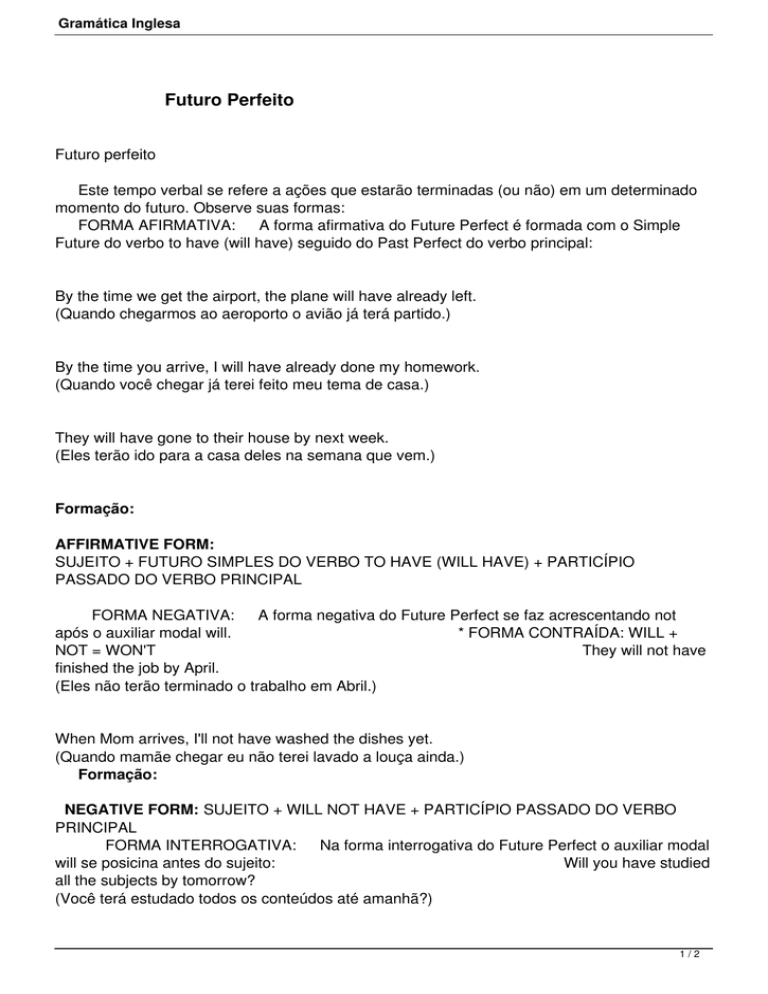
Gramática Inglesa
Futuro Perfeito
Futuro perfeito
Este tempo verbal se refere a ações que estarão terminadas (ou não) em um determinado
momento do futuro. Observe suas formas:
FORMA AFIRMATIVA:
A forma afirmativa do Future Perfect é formada com o Simple
Future do verbo to have (will have) seguido do Past Perfect do verbo principal:
By the time we get the airport, the plane will have already left.
(Quando chegarmos ao aeroporto o avião já terá partido.)
By the time you arrive, I will have already done my homework.
(Quando você chegar já terei feito meu tema de casa.)
They will have gone to their house by next week.
(Eles terão ido para a casa deles na semana que vem.)
Formação:
AFFIRMATIVE FORM:
SUJEITO + FUTURO SIMPLES DO VERBO TO HAVE (WILL HAVE) + PARTICÍPIO
PASSADO DO VERBO PRINCIPAL
FORMA NEGATIVA:
A forma negativa do Future Perfect se faz acrescentando not
após o auxiliar modal will.
* FORMA CONTRAÍDA: WILL +
NOT = WON'T
They will not have
finished the job by April.
(Eles não terão terminado o trabalho em Abril.)
When Mom arrives, I'll not have washed the dishes yet.
(Quando mamãe chegar eu não terei lavado a louça ainda.)
Formação:
NEGATIVE FORM: SUJEITO + WILL NOT HAVE + PARTICÍPIO PASSADO DO VERBO
PRINCIPAL
FORMA INTERROGATIVA:
Na forma interrogativa do Future Perfect o auxiliar modal
will se posicina antes do sujeito:
Will you have studied
all the subjects by tomorrow?
(Você terá estudado todos os conteúdos até amanhã?)
1/2
Gramática Inglesa
Will they have already published your article by Monday?
(Eles já terão publicado seu artigo até Segunda-Feira?)
Formação:
INTERROGATIVE FORM: WILL + SUJEITO + HAVE + PARTICÍPIO PASSADO DO VERBO
PRINCIPAL
2/2

